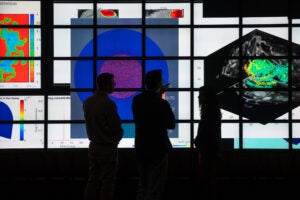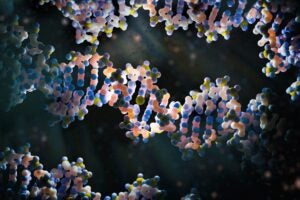“You can be an environmentalist and join the oil and gas industry.”
This statement, made by energy-industry-veteran-turned-professor Eric van Oort in a 2013 video (below), may seem hard to believe, given the legacy of environmental disasters linked to the industry at large. But van Oort is an optimist. He believes automation technologies offer a clear path to turning this legacy around.
“The oil and gas industry has been lagging behind other industries in terms of adopting automation, mechanization and robotization,” van Oort explains. “If you look at rigs in the field, you will still see people working in high-exposure areas such as the drill floor. We need to be better at taking people out of harm’s way, and making operations safer and more efficient at the same time.”
In 2013 The Department of Petroleum and Geosystems Engineering at the Cockrell School of Engineering launched three new hands-on laboratories that will advance energy research and transform the way students learn about oil and gas.
Van Oort envisions the labs as a place where faculty and students across engineering and related disciplines can address onshore and offshore drilling challenges that will help to make the drilling process safer and more environmentally sound.
The three labs, housed in the basement of the Chemical & Petroleum Engineering building, are the Real-time Operations Center, the Drilling Automation Lab and the Zonal Isolation Lab.
The Real-time Operations Center has the capability to process around-the-clock data from operational offshore or onshore wells. The Drilling Automation Lab boasts what’s believed to be the first-of-its-kind drilling simulator in a university setting. The Zonal Isolation Lab, often referred to as the cement lab, gives researchers the opportunity to test new methods and materials for improving onshore and offshore drilling.
“The goal is to have undergraduate students looking at and analyzing data, seeking out meaningful patterns, to help industry become safer,” van Oort said. “Graduate students will supervise them and also be conducting sophisticated research and development on this particular data.”
High-tech drilling labs. That’s how we change the world!
You may also be interested in:
Visit drilling.utexas.edu to learn more about RAPID, The Rig Automation and Performance Improvement in Drilling research consortium at UT Austin.
The July 2015 issue of The Journal of Petroleum Technology ran an in-depth feature about van Oort and the launch of the RAPID consortium.





